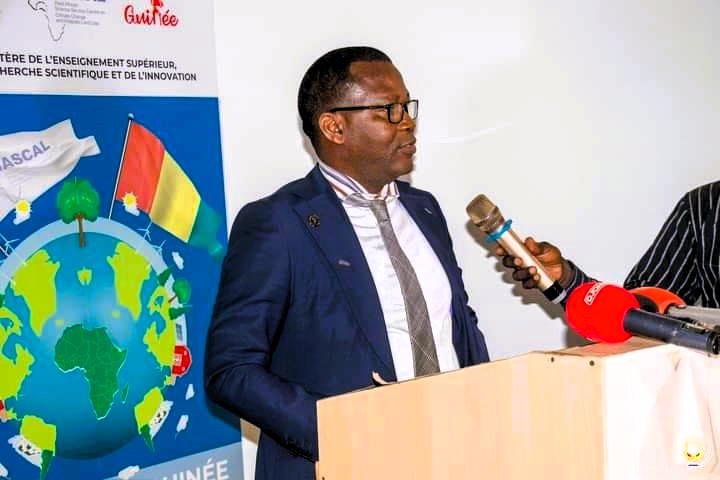
WASCAL has officially welcomed the Republic of Guinea as its 12-member state, as part of its regional integration approach to fighting climate change and improving livelihoods in West Africa. With this, Guinea will be hosting the WASCAL Graduate School Programme doctoral scholarship in Climate Change, Mining Environment, and Forest.
At a two-day orientation workshop held in Conakry, the Governing Board Chair of WASCAL, Prof. Marie Luce Quashi. Lucie expressed delight at the integration and what it means to the West African sub-region.
“This momentous and monumental occasion marks the commencement of a new chapter in WACAL- Guinea’s bilateral relationship towards sustainable development and resilience in the face of climate change. The climate crisis requires collective action, and through its partnership with WASCAL, Guinea reaffirms its dedication to international collaboration. By participating in climate change capacity building and research initiatives, Guinea will not only enhance its own resilience but also contribute valuable insights to help other nations better understand and adapt to these changing conditions” She said.
Speaking on behalf of the German Federal Ministry of Education and Research, Prof. Gabin Ananou, conveyed Germany’s commitment to support African states, especially those in West Africa, in combating climate change through scientific research and innovation. He also mentioned the availability of financial resources for Guinea, including scholarships, Graduate Studies Programme , and climate equipment.
The Director of Capacity Building Programmes at WASCAL, Prof. Daouda Koné, subsequently discussed the conditions, processes, and stages involved in establishing a doctoral school, listing a total of 12 conditions, including the selection of the theme, while, senior scientist, Dr. Seyni Salack provided an overview of Guinea’s integration into WASCAL’s research themes. Topics such as artificial intelligence, meteorology, and wind energy were among the priority research areas he identified.
The Minister of Agriculture and Livestock, Mr. Mamadou Gnalen Barry, expressed delight in Guinea’s abundant natural resources and acknowledged the threats to lives if appropriate measures are not taken. He expressed the Guinean government’s commitment to continue collaboration with the institution.
Through this partnership, Guinea will gain access to an extensive reservoir of expertise, cutting-edge research, and a network of like-minded countries. This platform will empower Guinea to develop its own tailored solutions, based on scientific insights and practical experiences shared by the WASCAL community.
The Competence Centre of WASCAL and the Guinean local stakeholders will also collaborate on Data Infrastructure and Observations by working on the evaluation of existing hydroclimatic observation networks, upgrading and expanding the network in Guinea using the appropriate technology in the fields of water, coastal wildfires, and oceanography.
In the coming months, WASCAL is looking forward to the inclusion of Liberia, Sierra Leone and Guinea Bissau to have a full complement of the regional cooperation agenda to fight climate change and improve livelihoods. Over the past 11 years, WASCAL has worked with governments and policymakers in fighting climate change through research and capacity building with major funding from the Federal Ministry of Education and Research, Germany (BMBF).




